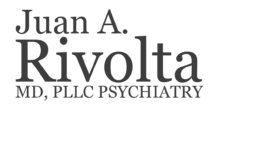For most people, participating in month-long challenges will provide a range of benefits and little downside, even over the longer term. It can also be helpful to focus on activities that don’t usually involve alcohol. Encourage your friends to meet up in the morning for breakfast, for example, or suggest healthy activities where alcohol is less likely to be present. Relying on intention and willpower to stop drinking, even for a short period, is not usually enough.
But, if you like building things from scratch, you might have to order gentian root and raspberry vinegar. Then, you’re going to have to roll up your sleeves and hone your chef’s knife. https://ecosoberhouse.com/ It can be difficult to provide a backbone or a solid base to a mixed drink without wine or spirits. Alcohol provides structure and it’s often pleasantly bitter and bracing.
Make a list of reasons for quitting — and refer to it often
She also recommends starting with an event where you’re most comfortable and even relying on an alcohol-free beverage to ease the transition. If you suddenly have a craving for alcohol, try doing some vigorous exercise or doing something you love instead. These things release the same feel-good chemicals in your brain as alcohol. They won’t make you feel intoxicated like alcohol but they may make you feel happier and more relaxed.
“We have found that Dry January results in people feeling more in control of their drinking long-term, and feeling more able to say no in response to societal pressures to drink. “The list is endless. Dry January helps millions to experience those benefits and to make a longer-lasting change to drink more healthily.” “We hear every day from people who took charge of their drinking using Dry January, and who feel healthier and happier as a result. Research shows that drinking large amounts of alcohol before bedtime leads to decreased sleep onset and disrupted, poor quality sleep later in the night. For instance, Dasgupta cited research he conducted on the relationship between genetics and alcohol misuse. He noted that people of Chinese and Indian descent do not benefit from drinking alcohol due to a genetic reason that isn’t fully understood.
Notice How You Feel
As a result, many people experience benefits such as improved sleep and waking without the fatigue, malaise, and upset stomach of a hangover. Some also find that without the extra calories due to alcohol they lose weight. Participants in Dry January also describe positive effects on their relationships. Depending on how much a person drinks, taking a break from alcohol for a month could lead to myriad positive changes. Some people might discover their alcohol use was irritating their stomach, disrupting their sleep, causing weight gain, contributing to conflicts, or that they relied more on alcohol for stress relief than they thought.
However, if you’re banking on a month-long break from alcohol to help you lose weight, Kumar said it’s not your best bet. Excess alcohol consumption may cause weight gain, which means that cutting out alcohol could lead to weight loss for some people. If you need a break from alcohol, going alcohol-free for how to take a break from alcohol a month or more can bring about many physical and mental health benefits. “Most of the dermatological conditions that are worsened by heavy drinking will slowly normalize over time after cutting out alcohol,” Dr. Genebriera says. Exactly how much time may vary according to the condition and the individual.
Stay on top of latest health news from Harvard Medical School.
“Nutrition therapy is very important in terms of feeding the liver and giving it the building blocks it needs to restore itself,” says Dr. Lindenmeyer. Another thing that will help your liver’s journey in recovery is good nutrition. There’s no miracle diet by any means, but the Mediterranean diet, for example, can help fill some of the nutritional gaps you may have due to alcohol use. “We’re finding that we can fill our days,” Daniel says, “but sometimes the nights are hard.” Then they discovered Sans Bar. “We came to a realization that we were drinking way too often and way too much,” says Zaleski.

